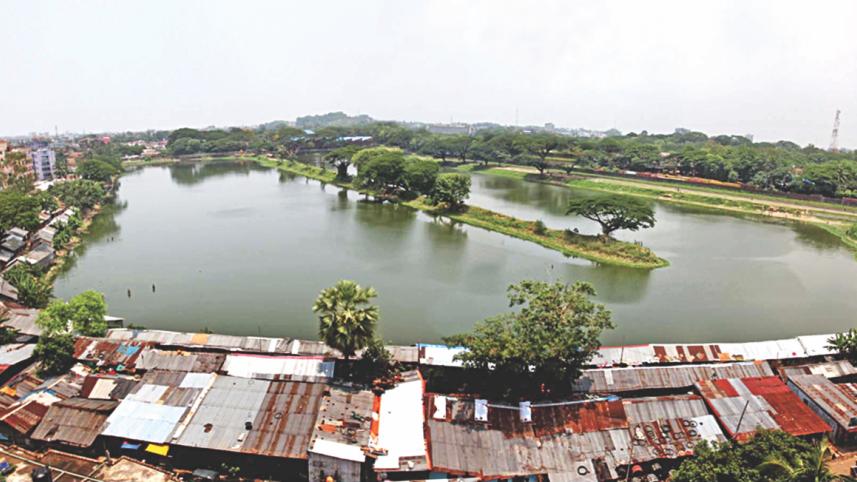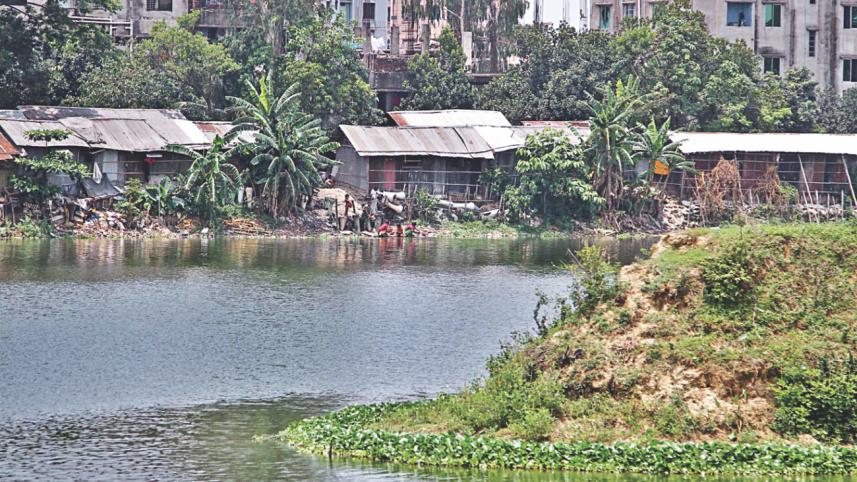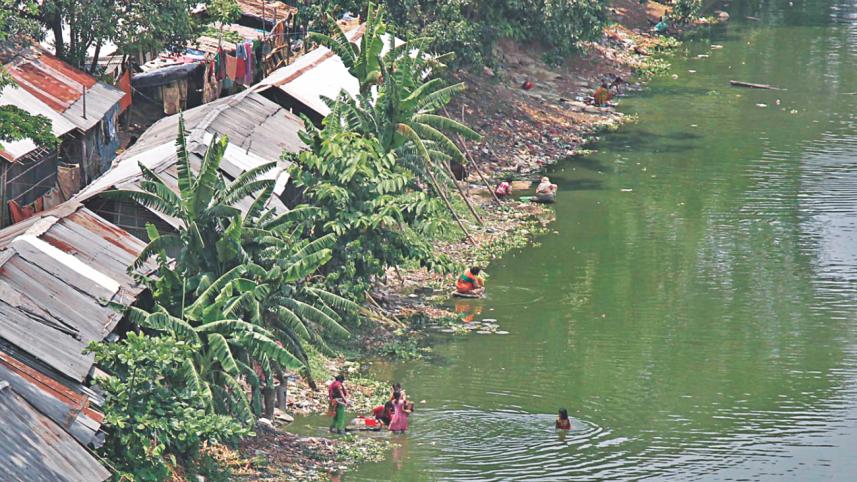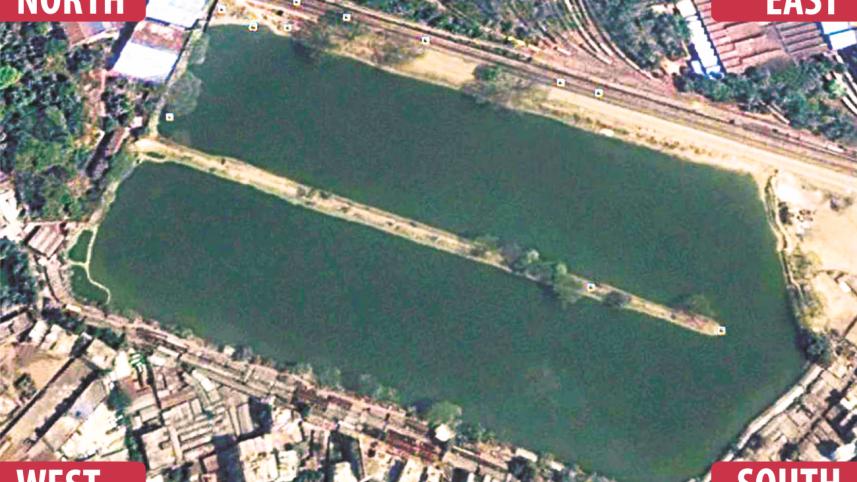Encroaching slum ruins beauty of port city's horseshoe pond

The horseshoe pond is one of the largest and most beautiful government-owned water bodies in Chittagong city. But pollution and encroachment by influential local people did not spare it either, damaging its potentials as another tourist spot of the city.
Even 15 years ago, large trees lined all four banks of the pond on 25 acres of land in Pahartali. People from far-off places came to visit the water body, and splashed around in it. Besides, the railway authorities as well as locals used the clear water for drinking.
According to the land office, its area is 25.87 acres excluding the banks, but the railway (east zone) leases it as a 21.48-acre pond. Asked, Divisional Estate Officer Jashim Uddin said it was 21.48 acres as per the railway documents but he did not know why there was a discrepancy.

Locally known as Jor Deba (twin ponds), it was dug by the railways authorities in 1896. A narrow, straight strip of land bifurcates the rectangular water body, giving it a resemblance to a horseshoe if seen from above, said Railway Estate Officer Abdul Bari.
But both west and south banks are occupied by over a hundred illegal shanties. Besides, the slum dwellers also dump waste on the banks as well as in the pond.
In a recent visit, this correspondent saw nearly three dozen bamboo houses made on bamboo platforms, grabbing the shallow area of the pond in the southern part. The structures were built 5-10 feet off the banks.
Nazim Uddin, a local shop owner, said, "It is frustrating that such a water body of panoramic beauty has been encroached upon and polluted by a few influential people while the railway authorities remain silent."
The encroachment started after the railways authorities leased it for fish farming to Abdul Hai, a local businessman, in 1996. According to locals, illegal shanties were built on the banks when Hai's lease was renewed for five more years in 2002.
In 2003, the railways authorities investigated the allegations and found Hai's involvement in building the shanties. So, the authorities did not renew the lease.

The divisional estate officer, Jashim, said it was the authorities' duty to maintain the large pond, and they could cancel the lease anytime. However, the official, who took the charge almost a year ago, said he did not understand why those steps were not taken when the encroachment was going on.
Hai took the matter to courtseeking contract renewal after 2007. After hearing several writ petitions, the High Court on January 8, 2015 finally permitted Hasnara, wife of Hai who died in 2009, to participate in the bidding process for taking lease of the pond.
Hasnara did not bid herself but his son did and came out as the highest bidder, said an official seeking anonymity. The official added that the authorities, however, sent a paper to the railway ministry informing it of the proven allegations against the family and asking for a decision whether to lease the pond to Hai's son.
Locals and the shanty residents said Hai's brother Gani look after the shanties and collected rents from the dwellers, an allegation he denied. Gani said "local people" built the illegal structures.

Seeking anonymity, a private organisation employee living in Pahartali said a mosque was built on the west bank to deter the authorities from carrying out eviction drives.
The divisional estate officer, Jashim, said he made a list of 8,000 individuals, who have grabbed railway's land in Chittagong city including that of the horseshoe pond, and would soon demolish the illegal structures on its banks.



 For all latest news, follow The Daily Star's Google News channel.
For all latest news, follow The Daily Star's Google News channel.
Comments